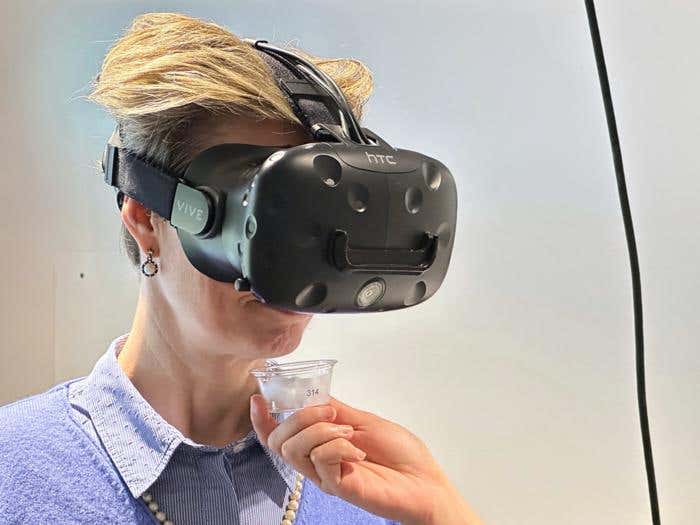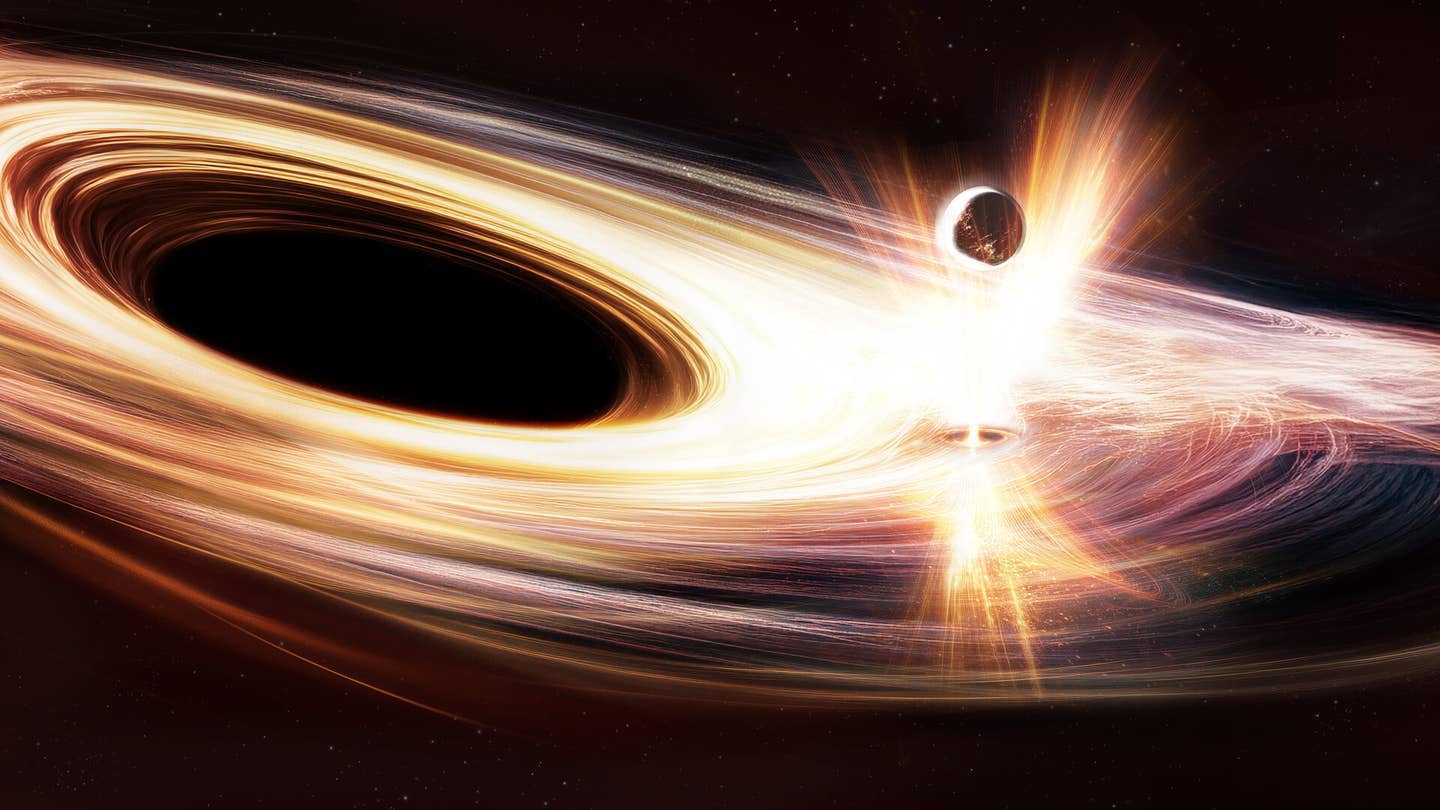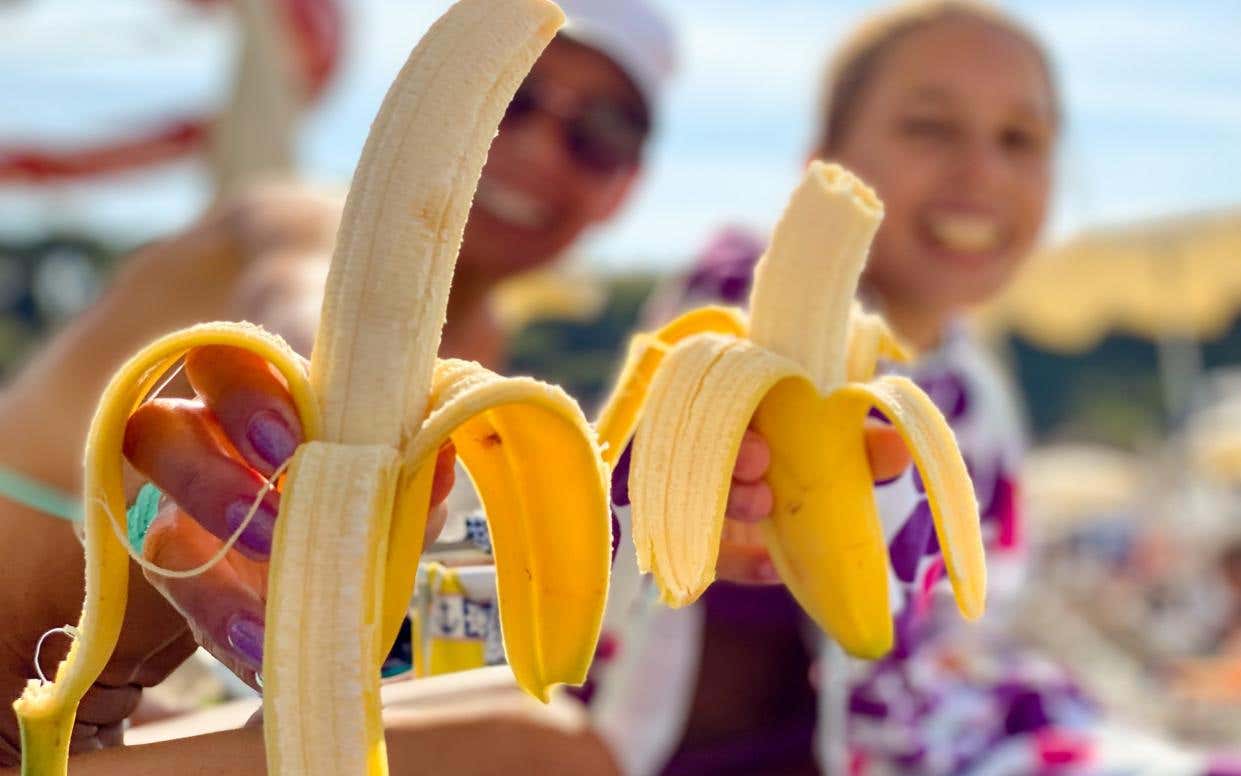The smell of food can make meals taste bad in space
The world’s first study on common food aromas may help explain why astronauts say meals taste bland in space and struggle to eat.

Associate Professor Gail Iles from RMIT University smelling an aroma sample, as participants did during the study. (CREDIT: Seamus Daniel, RMIT University)
You’ve likely heard that astronauts find their meals bland in space, struggling to eat enough to meet their nutritional needs.
Scientists from RMIT University have made strides in understanding why this happens through a groundbreaking study on food aromas.
This research, published in the International Journal of Food Science and Technology, could also benefit people in isolated settings, like nursing home residents, by enhancing the flavors of their meals.
Aroma significantly influences the flavor of food, and the team explored how perceptions of vanilla and almond extracts, along with lemon essential oil, change from normal Earth environments to the confined setting of the International Space Station (ISS).
To simulate the ISS environment, participants wore virtual reality goggles. Dr. Julia Low, the lead researcher, reported that vanilla and almond aromas became more intense in the simulated ISS environment, while the lemon scent remained unchanged.
A sweet chemical called benzaldehyde, found in vanilla and almond aromas, played a key role in altering perceptions. “A greater sense of loneliness and isolation may also play a role, and there are implications from this study around how isolated people smell and taste food,” Low explained.
This study is notable for involving a large sample size of 54 adults, capturing the variation in individual experiences of aromas and taste in isolated settings.
One long-term goal of the research is to create better-tailored foods for astronauts and other isolated individuals to help them meet their nutritional intake needs. “We aim to increase their nutritional intake closer to 100%,” said Low.
The findings suggest that spatial perception significantly influences how people smell aromas, aligning with other studies on astronauts' eating experiences in space. Weightlessness causes fluid to shift from the lower to upper parts of the body, leading to facial swelling and nasal congestion, which affects smell and taste.
These symptoms typically subside within a few weeks, yet astronauts continue to find their food unappealing. “Astronauts are still not enjoying their food even after fluid shift effects have gone, suggesting that there’s something more to this,” Low noted.
Associate Professor Gail Iles, a former astronaut instructor and co-researcher, highlighted the danger of astronauts not meeting their nutritional needs on long-term missions, such as future Artemis missions to Mars. “We need to understand the problems with diet and food and how crew interact with their food,” said Iles.
The VR study offered a remarkable simulation of the space station experience, altering how participants smelled and tasted food. Associate Professor Jayani Chandrapala, a food chemistry expert, emphasized the role of benzaldehyde in changing perceptions of aroma in the space simulation. “In our study, we believe that it’s this sweet aroma that gives that highly intensive aroma within the VR setting,” said Chandrapala.
The implications of this research extend beyond space travel. According to Low, the results could help personalize diets in socially isolated situations on Earth, such as in nursing homes, thereby improving nutritional intake.
Note: Materials provided above by the The Brighter Side of News. Content may be edited for style and length.
Like these kind of feel good stories? Get the Brighter Side of News' newsletter.
Joshua Shavit
Science & Technology Writer | AI and Robotics Reporter
Joshua Shavit is a Los Angeles-based science and technology writer with a passion for exploring the breakthroughs shaping the future. As a contributor to The Brighter Side of News, he focuses on positive and transformative advancements in AI, technology, physics, engineering, robotics and space science. Joshua is currently working towards a Bachelor of Science in Business Administration at the University of California, Berkeley. He combines his academic background with a talent for storytelling, making complex scientific discoveries engaging and accessible. His work highlights the innovators behind the ideas, bringing readers closer to the people driving progress.



